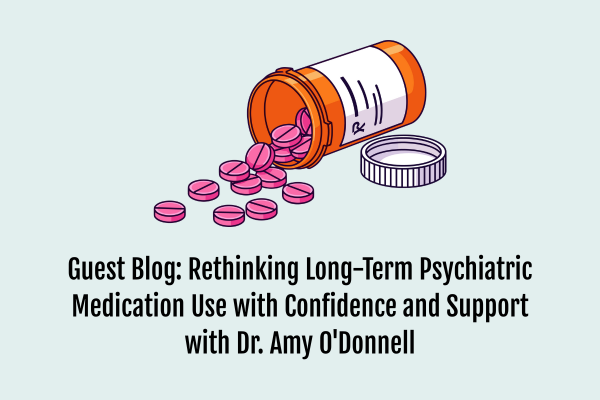Unlocking Energy from the Inside Out: A Dietitian’s Guide to Mitochondrial Health
Written by: Sophia Schweiger
Reviewed by: Devon Epitropoulos (Kroesche), MS, RDN, LDN
When it comes to energy, metabolism, and aging well, there’s a tiny powerhouse inside your cells doing most of the heavy lifting—your mitochondria.
Whether you are struggling with fatigue, brain fog, slow recovery from workouts, or simply feeling "off”, one of the most overlooked root causes of these symptoms is poor mitochondrial health.
In this article, we’ll explore what mitochondria are, why they matter, and how nutrition, meal planning, and healthy eating can support these essential energy producers. Whether you're an athlete, busy professional, or just trying to feel better day-to-day, you'll learn how to fuel your body at the cellular level.
What Are Mitochondria, and Why Do They Matter?
Mitochondria are often called the “powerhouses” of the cell, and for good reason.
These tiny organelles generate ATP (adenosine triphosphate), the energy currency your body uses for everything from muscle contractions to brain function. Each cell contains hundreds to thousands of mitochondria, depending on how much energy that cell needs.
When your mitochondria are functioning well, you feel:
● Energetic and mentally sharp
● More resilient to stress
● Able to recover faster from exercise
● Less inflamed and more metabolically balanced
When they’re not? You may experience:
● Chronic fatigue
● Brain fog
● Muscle weakness
● Blood sugar dysregulation
● Premature aging
That’s where personalized nutrition and smart lifestyle strategies come in.
What Affects Mitochondrial Health?
Mitochondrial dysfunction can be triggered by the following:
● Nutrient deficiencies
● Poor blood sugar control
● Chronic inflammation
● Toxin exposure (e.g., pollution, processed foods)
● Sedentary lifestyle
● Poor sleep
● High stress levels
The good news? Most of these are modifiable through healthy eating, targeted supplementation, and intentional self-care.
Mitochondria and Nutrition: Why Food Matters More Than You Think
Your mitochondria rely on key nutrients to produce ATP. Without them, your cellular engines start to sputter. Let’s take a look at some of the most important nutrients for mitochondrial health—and where to find them in your diet.
Essential Nutrients for Mitochondrial Function
B Vitamins (especially B1, B2, B3, B5, B6, B12, folate)
○ Role: Coenzymes in ATP production
○ Found in: Leafy greens, eggs, whole grains, fish, legumes
Magnesium
○ Role: Required for over 300 enzymatic reactions, including ATP synthesis ○ Found in: Pumpkin seeds, spinach, almonds, dark chocolate
Coenzyme Q10 (CoQ10)
○ Role: Helps transport electrons in the mitochondrial membrane
○ Found in: Organ meats, fatty fish, spinach (also available as a supplement)
L-Carnitine
○ Role: Transports fatty acids into mitochondria for energy production
○ Found in: Red meat, poultry, dairy (vegetarians may need supplementation)
Alpha-Lipoic Acid (ALA)
○ Role: Antioxidant support and glucose metabolism
○ Found in: Broccoli, tomatoes, spinach, Brussels sprouts
Omega-3 Fatty Acids
○ Role: Reduce inflammation and support mitochondrial membranes ○ Found in: Salmon, flaxseeds, walnuts, sardines
Antioxidants (Vitamin C, E, polyphenols)
○ Role: Protect mitochondria from oxidative stress
○ Found in: Berries, citrus fruits, green tea, colorful veggies
Healthy Eating for Mitochondrial Support
Want to support your mitochondria naturally? It starts with healthy eating habits that minimize inflammation and provide consistent, balanced fuel.
Here are some mitochondria-loving tips straight from a registered dietitian:
Focus on Whole Foods
Processed foods are high in sugar, ultra-processed oils, and other additives that can burden your mitochondria. Instead, aim for:
● Fresh vegetables (especially leafy greens and cruciferous veggies)
● Wild-caught or pasture-raised proteins
● Healthy fats from nuts, seeds, olive oil, and avocado
● Low-glycemic, fiber-rich carbohydrates like lentils and quinoa
Stabilize Blood Sugar
Spikes and crashes in blood sugar are mitochondrial stressors. Keep levels steady with balanced meals and smart meal planning:
● Combine carbs with protein and fat
● Avoid sugary drinks and refined snacks
● Eat every 3–5 hours to prevent spikes and crashes
Hydrate (But Not Just with Water)
Mitochondria need electrolytes, too! Add sea salt, lemon juice, or low-sugar electrolyte powders to your water, especially if you're active or sweating frequently.
A Dietitian’s Guide to Mitochondria-Friendly Meal Planning
Supporting your mitochondria doesn’t require fancy superfoods or extreme diets. With thoughtful meal planning and meal prep, you can make mitochondrial nutrition second nature.
Sample Mitochondrial-Supportive Meal Plan
Breakfast:
● Scrambled eggs with spinach and avocado
● Berries
● Green tea or matcha
Lunch:
● Grilled salmon bowl with quinoa, kale, and tahini dressing
● Side of fermented veggies (like kimchi or sauerkraut)
Snack:
● Greek yogurt with walnuts and cinnamon
● Or a hard-boiled egg with a handful of almonds
Dinner:
● Grass-fed beef stir-fry with broccoli, bell peppers, and garlic
● Served over cauliflower rice
● Herbal tea with lemon
This meal plan is rich in antioxidants, healthy fats, and mitochondrial cofactors, while being naturally anti-inflammatory.
Personalized Nutrition: Why One Size Doesn’t Fit All
Everyone has a different set of genetics, lifestyle habits, and metabolic needs. Some individuals may even have underlying gut issues or micronutrient imbalances that need to be addressed before energy improves. That’s why personalized nutrition is so important, especially when it comes to mitochondria.
A registered dietitian can help you identify:
● Food sensitivities
● Nutrient deficiencies
● Hidden sources of inflammation
● The best macro ratios for your energy needs
Whether you're optimizing athletic performance, managing chronic fatigue, or just trying to feel better, a personalized nutrition approach ensures you’re giving your cells exactly what they need.
Lifestyle Factors That Complement Mitochondrial Nutrition
Nutrition is a cornerstone—but it’s not the whole picture. Your daily habits play a huge role in supporting mitochondrial health.
Prioritize Sleep
Your mitochondria repair and regenerate during deep sleep. Adults should aim for 7–9 hours per night and avoid screens before bed to protect melatonin production and promote restful sleep.
Move Your Body
Exercise—especially strength training and interval workouts—stimulates mitochondrial biogenesis (the creation of new mitochondria). Try to:
● Strength train 2–3 times per week
● Walk daily (even short walks count)
● Include some high-intensity intervals for a metabolic boost
Manage Stress
Chronic stress taxes your mitochondria. Incorporate stress-reducing practices like:
● Breathwork
● Journaling
● Yoga or tai chi
● Nature walks
Limit Toxin Exposure
Environmental toxins can damage mitochondrial membranes and function. Avoid:
● Plastic food containers (opt for glass or stainless steel)
● Excess alcohol
● Artificial fragrances
● Highly processed packaged foods
Ready to Fuel Your Mitochondria and Feel Your Best?
You deserve to feel energized, focused, and strong—from the inside out. Supporting your mitochondrial health is one of the best long-term investments you can make for your wellness.
Need help getting started? Want expert guidance tailored to your body and goals?
Reach out to scheduling@casespecificnutrition.com to connect with a Case Specific Dietitian and start building your mitochondrial game plan today. Our team provides individualized nutrition care across the Greater Pittsburgh area, as well as in Erie, Raleigh, and Tampa.
Disclaimer: The information provided in this blog is for educational purposes only and is not intended to diagnose, treat, cure, or prevent any medical condition. This content is not medical advice and should not be used as a substitute for professional medical care. If you have any health concerns or medical conditions, please consult with a qualified healthcare provider before making any changes to your diet or lifestyle.





.webp)

